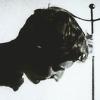Before They Were Truckers: An Oral History of Adam’s House Cat
Wednesday, Feb. 13 @ 40 Watt Club

Photo Credit: Patrick Hood
One of Athens’ most anticipated musical events returns this week, as the Drive-By Truckers host their annual HeAthens Homecoming series. From Thursday, Feb. 14–Saturday, Feb. 16, the acclaimed Southern rock group sets up shop at the 40 Watt Club, and fans from all over flood in for a taste of the band’s country-punk gospel.
This year, the series kicks off early with a bonus concert featuring a performance from Adam’s House Cat, an early project from Truckers principals Patterson Hood and Mike Cooley, who co-founded the group in the mid-1980s with drummer Chuck Tremblay and bassist John Cahoon. In 1990, Adam’s House Cat tracked a full-length, Town Burned Down, but it never saw the light of day, and the band called it quits in 1991.
Somewhat improbably, the remaining members of the pre-DBT outfit—Cahoon and his replacement, Chris Quillen, have both since died—reconvened last year with Athens engineer David Barbe to finish what they’d started nearly 30 years prior. Flagpole spoke with Hood, Tremblay and Barbe about the long road to Town Burned Down.
Patterson Hood: Adam’s House Cat was formed in 1985 by Cooley and [me] while we were roommates living in a dump back home in Florence, AL. We were joined by bassist John Cahoon, whose father was the mayor of Tuscumbia, one of the four towns that make up the Muscle Shoals area in northwest Alabama. He lived across the street from Ivy Green, where Helen Keller had lived and where The Miracle Worker takes place.
Chuck Tremblay: I had just moved to town and gotten off the road with another group. I had made up a crummy-looking little business card and left it at a local music store. [Patterson] called me up.
PH: [Chuck] was a decade older—we thought he was ancient; at the time, he was in his 30s—and a killer drummer. He was by far the best musician in the band, and was also kind of our heart and soul. He taught me things that still are a part of my life and livelihood all these years later.
CT: Our first rehearsal, we played in John’s dad’s insurance office or something in Tuscumbia. We’d take a break and walk outside, and I’d look over, and there was this jailhouse next door. So, we were kind of entertaining them, too, at the same time.
PH: The four of us practiced all of the time in my grandmother’s basement in Florence—several nights a week for most of six years. We seldom had shows, because what we were doing was considered to be out of touch with the fashions and trends of the day. Plus, Muscle Shoals really didn’t have a live music scene—especially for a band that refused to play Top 40 covers or country.
CT: There wasn’t anywhere to play in Florence. Somehow, we got hooked up with a lot of people in Nashville. We wound up playing in Nashville a lot, and in Memphis. We’d play in Huntsville and Birmingham, too.
PH: We often played for less than a dozen people, which didn’t exactly endear us to club owners.
David Barbe: I knew about Adam's House Cat from Patterson for a long time before I actually heard them. Mercyland and AHC were direct contemporaries, 1985–’91. We played some of the same venues and shared bills with some of the same bands. It's sort of amazing that we never crossed paths.
PH: We recorded a song and submitted it to Musician magazine’s best unsigned band contest and were first-place winners. In addition to the press coverage, our song was included on a Warner Bros. compilation. It attracted the attention of some major labels, and we wasted several years on the verge of being signed, only to have it all end. That was the point when we decided to make Town Burned Down ourselves and self-release it… We recorded the basic tracks in the cavernous upstairs rooms above Muscle Shoals Sound Studio in Sheffield, AL.
CT: At the time, I didn’t know who Pat’s dad was. [Editor’s note: Hood’s father, David Hood, is a renowned session bassist known for his role in the famed Muscle Shoals Rhythm Section.] I had been in a couple of studios where they always had these fake gold records of local artists. I walked in and looked over at the wall, and there were all these [real] gold records, and platinums. I didn’t realize what studio I was in.
PH: We tracked about 15 songs in one very long day. Many were first and second takes. All instruments were tracked live. The original vocal takes were recorded several months later in early 1991, on the evening of the beginning of Operation Desert Storm. The album was recorded, mixed and produced by Steve Melton, a veteran of the Muscle Shoals recording scene.
CT: We recorded it all in one day. We went in there and helped set up all the microphones and everything. We walked in there about 8 o’clock in the morning, and we were in there until about 1 o’clock the next morning. We were tired. I got up and went to work the next day.
PH: As we were completing the album, John Cahoon left the band and was replaced with Chris Quillen, a close friend from home. He wasn’t willing to join as a permanent full-time member. In September of 1991, Cooley and I moved to Memphis in an attempt at relocating the band there. Chuck wasn’t able to join us, and that was the end of the band.
CT: It’s kind of strange, because we didn’t really have a official breakup. Nobody said, “I hate your guts,” and all that. Everybody just kinda drifted off a little bit.
PH: Cooley and I continued onward as a duo called Virgil Kane, relocating to Auburn. We broke up for a couple of years in 1993, and I moved back home to Florence during that time.
CT: We just kind of lost track of each other for a little while. It was something that kind of gnawed at me, because the main thing was the album, and it never got finished. That was something that kind of bugged me through the years.
DB: When Patterson and I became friends, he told me about Adam’s House Cat and their lost album. I refer to Mercyland and Adam's House Cat as our “failure bands”: Work hard, believe it can work, flashes of acclaim, near misses, concluding with a realization that our endeavor is ultimately screwed.
PH: DBT was heavily influenced by the failures of AHC. We set out to bypass the biz in every way possible for as long as possible. We self-released our first four albums. We raised the money for Southern Rock Opera online—thanks, Jenn Bryant—in a way very close to what’s now Kickstarter and began touring extensively.
DB: Patterson told me for years how much he wished they could remix [the Adam’s House Cat] album and release it. Unfortunately, no one knew where the master tapes were. They had not been seen in years.
PH: The two-track, half-inch mix tapes were destroyed in a tornado in Jackson, MS several years ago. The tapes had been stored in the vault at Muscle Shoals Sound for years, but were taken by Malaco, the company that owned that building when it was liquidated. Malaco’s studio was destroyed by a tornado, and the [mixed] tapes were lost forever. We did locate the original two-inch, 24-track unmixed tapes.
DB: I had them at Chase Park [Transduction], but I have no idea where they came from. They were probably dropped off by someone who knew of my association with DBT and figured this was the place. When we were remodeling the studio a few years back, I found the reels and showed them to Patterson. He was astonished and, frankly, thrilled to see them after all these years, so we decided to have a listen and see what we had.
CT: Me and Pat had been kinda keeping in contact with each other. He called me up and said, “Remember when all those tapes [went missing]?” And I said, “Yeah I always wondered what happened to those.” He said, “Well, they kinda showed up.” It didn’t matter to me [how it happened]. I was just glad [the tapes] were still alive.
DB: Playing a reel of analog tape that old requires some special care. The oxide can shed from the backing to the point that running the tape across the heads of a tape machine when you play it back could literally scrub off all of the sound. We have a chemical oven at CPT for the purpose of baking old tapes to re-affix the oxide. I baked the tapes, and we pulled them up to have a listen as we made a digital safety copy.
CT: I was just surprised the way everything sounded. Sometimes, with tapes that are sitting around so long, you kinda have to restore the tapes. But it was just like it was the day we recorded it.
DB: The tracks sounded great, but had been recorded with Dolby SR, a noise reduction system that was in vogue in the late ’80s and early ’90s, before digital took over. Anything encoded with Dolby SR requires that it be played back through a Dolby SR system for decoding. I don't have any Dolby SR units, and no one in Atlanta could ever recall any of them being there. Fortunately, Sonicraft in New Jersey can transfer from just about any audio format ever used into a digital file. We sent them the reels [and] mixed the album when we got them back.
PH: Chuck flew down from Cleveland, and Cooley drove over, and we all sat in on the mixdown together. It was the first time we had all spent time together in nearly 27 years. Within five minutes, it was as if we’d been hanging out all along.
DB: It was illuminating for me to hear Patterson and Cooley's raw studio tracks from so long ago, especially considering how much of the last 20 years I have spent engulfed in their music. It is an important piece of the evolutionary puzzle of their creative process.
PH: Releasing Town Burned Down in 2018 was my New Year’s resolution last year. ATO released the album on Sept. 21, 2018. Adam’s House Cat played three shows opening for DBT the following week in Knoxville and Atlanta.
CT: We did a couple of days of rehearsal. We hadn’t played in front of people in a while. It was great to get out there. I felt great. We were actually doing what we set out to do 28, almost 30 years ago.
PH: When we made [the record], it was the culmination of six years we had spent as a band, and we thought we were making a great album—possibly one that would bring us attention beyond the 30 or so people who liked that band.
DB: The response to Town Burned Down has been fantastic, and I'm sure really gratifying to Patterson and Cooley. When you are in an indie band, you either believe or at least hope that there is an audience out there for what you do. Turns out that Adam's House Cat had one—they just never got a chance to hear the music.
Calendar
-
Wednesday, February 13
40 Watt Club
Adam's House Cat, Jay Gonzalez
ADAM'S HOUSE CAT Reunited rock band featuring Drive-By Truckers members Patterson Hood and Mike Cooley. See story on p. 10.
JAY GONZALEZ Athens-based songwriter and multi-instrumentalist with an affinity for classic pop melodies.












comments